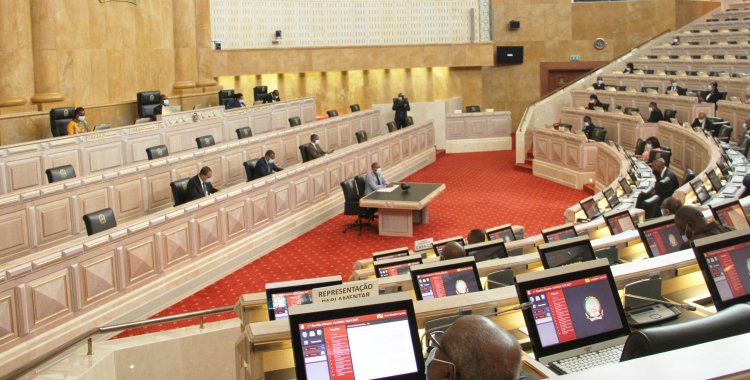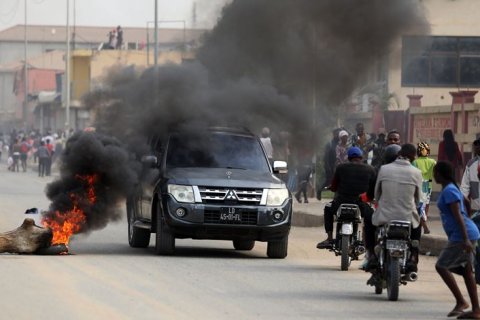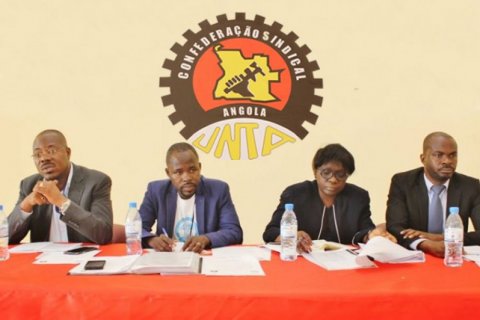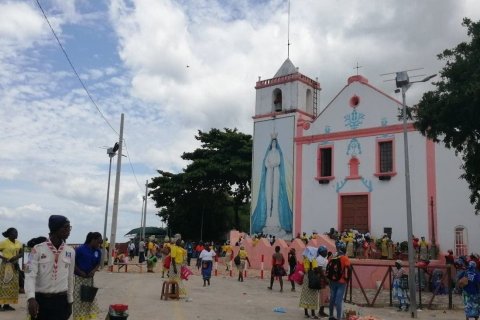According to the Popular Movement for the Liberation of Angola (MPLA), the proposal for the General State Budget (OGE) 2024, under discussion in parliament, is the annual financial expression of the implementation of the National Development Plan (PDN) 2023-2027.
MPLA deputy, Idalina Valente, who made her party's political declaration at the plenary meeting of the National Assembly, recalled that the PDN is the main instrument for implementing State policies.
"It is through it that we seek to increasingly improve the well-being of our fellow citizens", she said, highlighting that the instrument, along with the Angola Long-Term Strategy 2050, constitute the basis of the National Planning System.
For 2024, the OGE "represents itself in an uncertain international economic context. Due to this uncertainty, a lower impact on economic growth is expected compared to 2023", she highlighted.
The Government forecasts Gross Domestic Product (GDP) growth of 2.8 percent in 2024, reflecting growth in the non-oil sector at a rate of 4.6 percent, and inflation of around 5.3 percent. In the same year.
The economic projections for the 2024 economic year are described in the report justifying the OGE 2024 proposal, which sets expenses and estimates global revenues valued at 24.7 billion kwanzas and highlights that oil production, including gas production, in this year should fall 2.6 percent.
Idalina Valente highlighted the global OGE 2024 numbers, noting that the macroeconomic management instrument prioritizes, in functional terms, debt service, which represents around 59 percent of total expenditure.
The social sector represents the second largest share of the Budget with 20.1 percent, general public services with 9 percent, defense and public order with 7.1 percent and the economic sector with 4.9 percent, "with This must be, fundamentally, leveraged with competition from the private sector", he indicated.
"This is a Budget that, in a context of difficulties, looks at families, at companies, at the sustainability of public finances and looks at the economy", she highlighted.
At a time when families need support, she argued, the OGE proposal "prioritizes strengthening the income of families and workers and boosts people's access by adjusting public service salaries."
The OGE also prioritizes relieving the tax burden on workers, increasing tax exemption from the IRT (Labor Income Tax), focusing on employment and protecting the most vulnerable, he assured.
In relation to the country's current socioeconomic context, marked by the constant rise in prices of basic goods, the MPLA deputy highlighted that the year "continues to be challenging for the global and national economy".
"We are part of the context of nations and therefore we are not oblivious to this global exposure, world conflicts have increased the volatility of the price of oil and food, particularly cereals on the international market, which is a possible spread of the conflict in the medium east could further exacerbate prices", he maintained.
The national economic context, he said, is being marked by several adverse shocks, such as the economic slowdown resulting, among others, from lower oil production, exchange rate depreciation due to lower currency inflows, debt service payments and increased inflation.
Despite these challenges, Idalina Valente pointed out, GDP stood at an average of 0.25 percent in the first and second quarter of this year, "driven by the non-oil sector, which is expected to have a growth rate of 0.4 percent.”
"Associated with the reduced economic growth is the high rate of demographic growth, which has accentuated the degradation of the social situation", the MPLA deputy also highlighted.
Idalina Valente also praised the executive who, "despite these adverse winds, was able to introduce measures such as spending captivation, allowing the non-oil primary deficit to be reduced".







